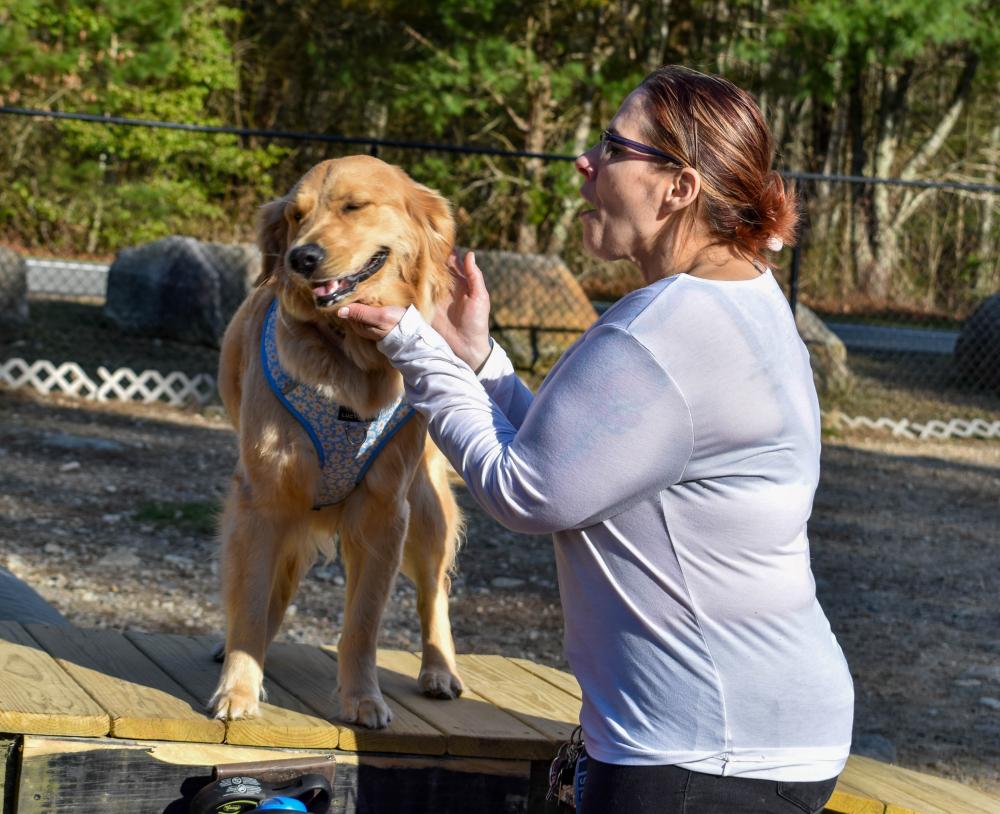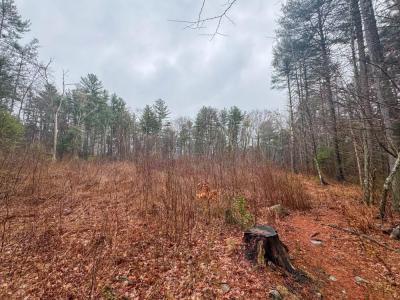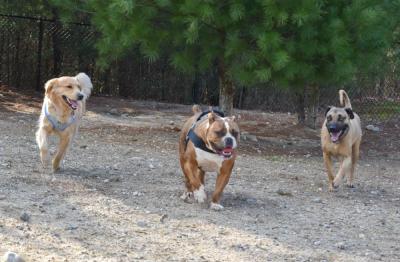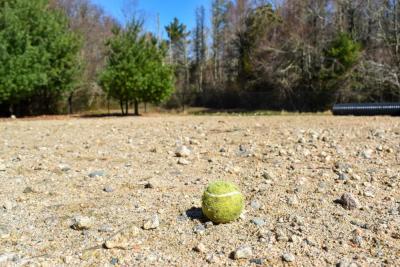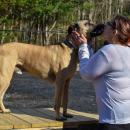Woof! Long-awaited dog park construction out for bid
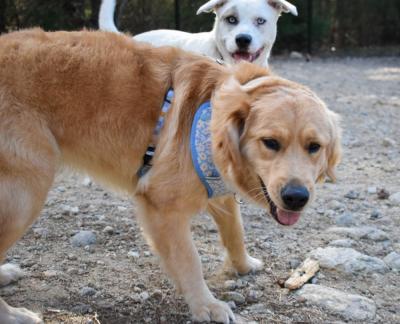
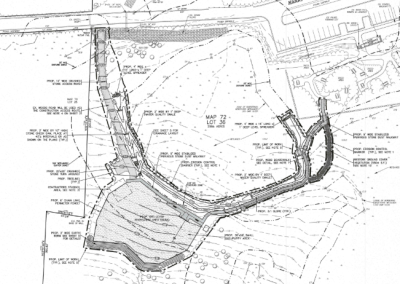
Tails are wagging in anticipation across Dartmouth as the long-time coveted off-leash dog park finally went out to bid for construction earlier this month.
Efforts to bring a permanent dog park to town began more than a decade ago when a group of residents formed the nonprofit, Dartmouth Dog Advisory Work Group, to assist the town in making their dream a reality. The park is slated to be constructed within the Dartmouth Regional Park on Harry M. Reynolds Drive.
“I’ve been a bug in their ear because we’ve been at this a long time,” said Diane Camacho, a member of DDAWG since around 2010.
Over the years, the project has faced a number of challenges, from staffing shortages to delays caused by the Covid pandemic. The project was even canceled for a time after funding was approved in 2014.
Camacho noted how when the project was canceled, the initial design plans had to be forfeited to the company the town was working with. When efforts began again, the town had to start from scratch, including getting approval from the Conservation Commission as the area is surrounded by wetlands.
In 2017, the Community Preservation Committee approved a $291,671 grant to fund the park’s development. That same year, a temporary park was opened and exists there now across from where the new park will be built. The permanent park is slated to be larger, have separate areas for small dogs, nicer grounds and outdoor lighting.
“The kinds of delays that we have gone through — it’s kind of hard to see the light at the end of the tunnel, even though we’re so close,” Camacho said. “It’s certainly been a lesson in patience.”
“The [Community Preservation Committee] has been more than patient,” she added.
Assistant Town Administrator Chris Vitale dispelled fears that the community preservation funding would expire at the end of the fiscal year. He said although the grants do operate under contract terms, the committee has the option to provide extensions, which it has done since 2017, “with the understanding that progress, while slow, is still moving forward.”
Vitale’s involvement with the project began in early 2024, design plans had been approved the year prior, but staffing issues put the project on hold.
When work kicked back up, a review revealed the need for an engineering consultant to assist the town in drafting the bid documents, helping them review proposals that were submitted and provide oversight as construction develops.
Bid documents were assembled in the fall and, after legal review, were greenlit at the start of April when advertisements went out.
“Unfortunately, there’s a little bit of time associated with each of those tasks, but to the best of our ability, we’re doing what we can to move the project forward and ultimately see it done,” Vitale said.
“We’re excited that we’re in the bid process now,” he said, adding the town will be inviting out respondents within the next week or two for a pre-bid meeting where prospective developers can review the site and ask any questions.
“It’s hard to say” what the total cost of the project will be, Vitale said. Once bids are collected, the town will evaluate the plans for opportunities where some in-house work could be completed to save money.
“A considerable amount of the project cost has to do with earthwork and that is something where we do have a very skilled staff at our department of Public Works that may be able to take that on and get us within the project budget,” Vitale said.
After that, if the project remains over budget, the town could consider requesting more community preservation or capital funding.
DDAWG has raised $15,000 through can-drives, cashing in empty cans and bottles, to put toward the project. Once this goal was met, the nonprofit limited its efforts to what was necessary to keep operations afloat, such as liability insurance for the temporary park.
“We just don’t want to ask people for more money until they see something,” Camacho said. “It’s only right.”
She said although the nonprofit’s board began with a dozen members, they are now down to six.
“People are bailing because they got frustrated,” Camacho explained. “None of us have our original dogs that we had when we first started the project.”
At the temporary dog park, residents have been making the most of what’s available to them. The small park is in a fenced area with a couple benches, a few trees and a short tunnel system for pups to run in and out of.
Steven Baron of Dartmouth has been bringing Scout, a 4-year-old Olde English Bulldogge, to the park for years.
“I thought it would be good to take him here when he was a little puppy, that way he could socialize with people and other dogs,” Baron said.
When the weather is nice, the park draws a crowd, he said, but there have been a number of times where it's just the two of them.
“It’s just been a nice, peaceful place to come where it’s quiet — in the middle of nature — and a nice place to relax a little and get him a little exercise.”
Emily Lo has been bringing Honey, the 1-year-old golden retriever, to Dartmouth since she moved to Lakeville at the end of the summer.
Close to her house with good parking, Lo said, “It’s very clean and everyone that comes here is so friendly. It’s a good place to bring the dog and not have to worry about her.”
Lisa Rioux of Acushnet has been bringing her dogs, Chevy, a lab pitbull, and Hope, a lab pitbull husky mix, to the park for the last eight years and shared Lo’s sentiments.
“They can pretty much roam around as they please,” she said, adding she thinks the park is great. “I think the people that take care of it do a pretty darn good job and kudos to them.”



